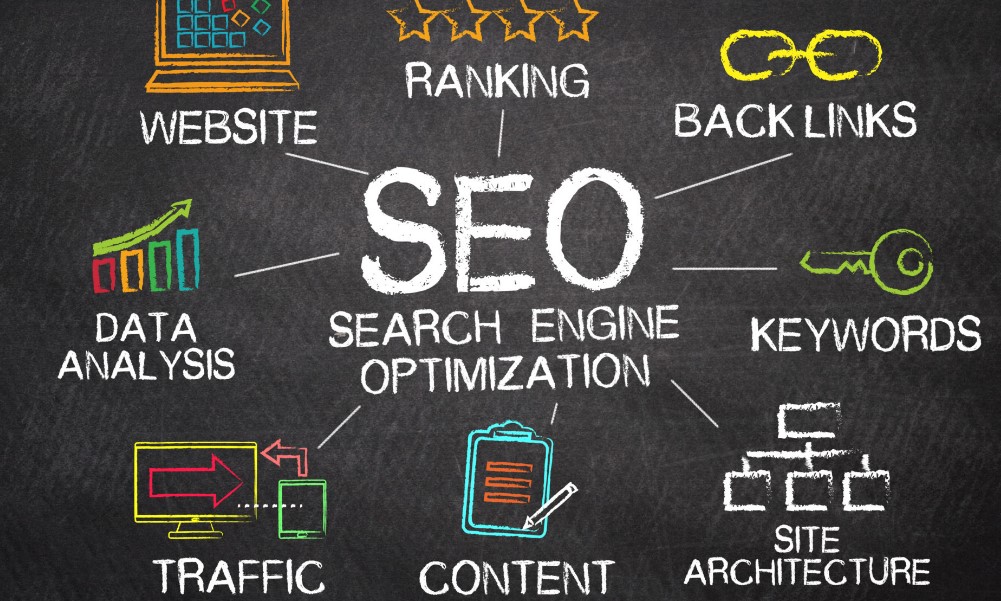SEO for Small Businesses: Boost Your Online Presence with the Right Tools
In the competitive landscape of digital marketing, small businesses are increasingly recognizing the power of Search Engine Optimization (SEO) to stand out in search results, attract new customers, and achieve sustainable growth. With SEO, a small business can rise above competitors by optimizing its online presence to meet customer needs and search engine requirements. This guide provides a deep dive into SEO for small businesses, covering essential tools, effective strategies, and actionable insights to help businesses build a strong online presence.
Why SEO Matters for Small Businesses

SEO isn’t just a strategy for big companies; it’s a vital tool for small businesses that want to grow their customer base and improve brand visibility online. For small businesses, the benefits of SEO include:
- Enhanced Visibility: SEO enables businesses to appear on the first pages of search engine results, making them easily discoverable by customers.
- Targeted Customer Traffic: Unlike general advertising, SEO targets customers actively searching for specific products or services, increasing the chances of conversions.
- Cost-Effectiveness: While paid advertising can provide quick results, SEO is a long-term strategy that continues to bring in traffic without ongoing advertising costs.
Types of SEO for Small Businesses

For small businesses, understanding the different types of SEO can help create a well-rounded strategy that boosts online visibility and reaches target customers effectively. Here are some essential types of SEO for small businesses:
On-Page SEO
On-page SEO focuses on optimizing individual web pages to rank higher and earn more relevant traffic in search engines. Key elements of on-page SEO include using keywords strategically in titles, headings, and throughout the content. Additionally, on-page SEO involves optimizing meta descriptions, URLs, and internal linking structures. For small businesses, on-page SEO ensures that every page provides clear, relevant information, helping search engines understand the content and relevance of each page.
Benefits:
- Improves website’s relevance for target keywords.
- Enhances user experience by making content easy to read and navigate.
Off-Page SEO
Off-page SEO involves efforts made outside of the website to improve its visibility and authority. This type includes backlink building, social media marketing, and influencer outreach. By gaining links from credible websites, small businesses can increase their site’s domain authority, which helps in ranking higher on search engine results pages (SERPs). Off-page SEO also includes building a presence on social platforms, which helps attract more visitors and encourages engagement.
Benefits:
- Increases domain authority and website credibility.
- Drives traffic from sources beyond search engines, expanding reach.
Local SEO
Local SEO is essential for small businesses looking to attract customers in specific geographic areas. By optimizing for location-based keywords and creating business listings on Google My Business, Yelp, and other platforms, businesses can rank higher in local searches. Local SEO strategies include using location-specific keywords, encouraging positive reviews, and ensuring consistent business information across directories.
Benefits:
- Increases visibility in local search results, making it easier for nearby customers to find your business.
- Drives foot traffic and local engagement by targeting specific geographic areas.
Technical SEO
Technical SEO focuses on optimizing the website’s technical aspects to improve user experience and help search engines index the site more effectively. This includes improving page speed, ensuring mobile-friendliness, and enhancing website security. Technical SEO also covers structured data and XML sitemaps, which help search engines understand the site structure.
Benefits:
- Ensures website loads quickly and efficiently on all devices.
- Improves search engine indexing, making content more accessible to users.
By combining these types of SEO—on-page, off-page, local, and technical—small businesses can create a comprehensive SEO strategy that builds visibility, attracts relevant traffic, and improves user experience. These SEO types work together to position a small business for online growth and long-term success.
Key Features of SEO for Small Businesses

Local SEO Optimization
Local SEO is essential for small businesses aiming to reach nearby customers. By optimizing for location-based keywords like “near me” or specific city names, small businesses can appear in searches from potential customers in their area. Setting up a Google My Business profile, adding accurate contact details, and encouraging customer reviews are vital steps in local SEO that increase visibility and boost conversions.
Keyword Research and Targeting
Keyword research is a foundational element of effective SEO. For small businesses, it’s especially beneficial to target niche keywords—phrases with lower competition but high relevance to what the business offers. Long-tail keywords, which are more specific phrases (e.g., “organic coffee beans shop in Seattle”), help drive targeted traffic. Tools like Google Keyword Planner can help identify valuable keywords that align with what local customers are searching for, making it easier to reach the right audience.
Content Creation and Optimization
High-quality, SEO-optimized content is critical to capturing customer attention and improving search rankings. For small businesses, blog posts, service descriptions, and FAQ sections allow them to share expertise and engage potential customers. Optimized content should include relevant keywords, structured headers, and genuinely helpful insights to address common questions and needs of the target audience. Consistently producing valuable content establishes the business as a knowledgeable authority in its field and strengthens its online presence.
Backlink Building
Backlinks from reputable websites act as a signal to search engines, establishing your business as credible and trustworthy. Small businesses can build backlinks through collaborations with local blogs, guest posting, or connecting with satisfied customers who may share positive reviews or experiences on their own platforms. Quality backlinks enhance domain authority, which improves the business’s rankings in search results and broadens its online reach.
Mobile Optimization
With a large portion of online searches conducted on mobile devices, having a mobile-optimized website is essential. Small businesses need a responsive design that provides an optimal user experience on any device. Mobile optimization includes improving site speed and usability, which helps reduce bounce rates and keeps visitors engaged longer. Ensuring mobile compatibility not only enhances the user experience but also positively impacts search engine rankings, helping the business reach a larger audience.
Essential SEO Tools for Small Businesses

Here, we’ll cover three of the best SEO tools that small businesses can use to enhance their SEO efforts. Each tool provides unique features that help businesses improve online visibility, monitor performance, and optimize content.
Moz Pro
Website: Moz Pro
Moz Pro is a powerful SEO tool that equips small businesses with essential tools for keyword research, backlink analysis, and site audits. Moz Pro is ideal for small businesses that want a robust, all-in-one tool that covers every aspect of SEO.
Features:
- Keyword Research: Moz Pro offers in-depth keyword research, helping businesses identify keywords that potential customers are actively searching for.
- Site Audits: This feature quickly detects technical SEO issues on your website that may prevent it from ranking on search engines.
- Link Analysis: Moz’s link index is highly regarded and helps businesses understand their backlink profile to improve SEO rankings.
Pros:
- Comprehensive suite for all SEO needs.
- Easy-to-use interface, which is particularly beneficial for users new to SEO.
Cons:
- Pricing may be a factor for small businesses with tight budgets.
Price: Starting at $99/month
Use Case: Moz Pro is especially useful for small businesses looking to improve keyword targeting, detect and fix site issues, and understand their link-building opportunities.
Where to Buy: Purchase Moz Pro
Ahrefs
Website: Ahrefs
Ahrefs is widely known for its powerful backlink and keyword analysis features, helping businesses understand their competitors’ SEO strategies and uncover opportunities for growth.
Features:
- Content Explorer: Allows businesses to explore top-performing content across their industry, helping identify potential content ideas.
- Competitor Analysis: Provides insight into competitors’ keywords, backlinks, and top pages.
- Backlink Analysis: Ahrefs offers a comprehensive backlink tool to track who’s linking to your website and how to improve your link-building strategy.
Pros:
- Extensive features for content and competitor analysis.
- Comprehensive backlink data.
Cons:
- Higher learning curve for beginners.
Price: Starts at $99/month
Use Case: Ahrefs is particularly valuable for businesses looking to outperform competitors by monitoring their SEO performance and building a strong backlink profile.
Where to Buy: Purchase Ahrefs
SEMrush
Website: SEMrush
SEMrush is a versatile tool that offers SEO, content marketing, and social media management tools, making it a highly beneficial option for businesses that want an integrated approach to digital marketing.
Features:
- Position Tracking: SEMrush’s position tracking tool helps businesses monitor keyword rankings and competitor performance.
- On-Page SEO Checker: Provides detailed insights to help optimize specific pages for better search engine performance.
- Content Marketing Tools: These tools help businesses create content that is optimized for SEO and resonates with their audience.
Pros:
- Integrated social media and advertising tools.
- Offers insights across multiple aspects of digital marketing.
Cons:
- More expensive pricing tiers may not suit every small business.
Price: Starting at $119.95/month
Use Case: SEMrush is a great choice for small businesses that want a broader marketing tool that combines SEO, content optimization, and social media management.
Where to Buy: Purchase SEMrush
Moz Pro vs. Ahrefs vs. SEMrush: Choosing the Right Tool for Your Business
Each of these tools offers unique benefits for small businesses. To help you make an informed decision, let’s break down what makes each of them special:
- Moz Pro: Best for comprehensive SEO analysis. Moz Pro’s user-friendly interface makes it suitable for beginners and provides all-in-one functionality for keyword research, on-page SEO, and link-building.
- Ahrefs: Best for in-depth competitor insights and backlink analysis. Small businesses looking to monitor competitor performance and build an authoritative backlink profile will find Ahrefs especially useful.
- SEMrush: Best for integrated digital marketing. SEMrush goes beyond SEO, offering tools for content and social media management, making it ideal for businesses aiming for a well-rounded online presence.
How to Buy and Where to Buy
- Moz Pro: Purchase directly from Moz Pro’s website, with multiple monthly plans available.
- Ahrefs: Ahrefs has several pricing options to suit different needs and budgets. Plans are available on the Ahrefs website.
- SEMrush: SEMrush provides various pricing tiers. Compare plans and select the best option for your business at the SEMrush website.
Use Cases: Real-World Applications of SEO Tools for Small Businesses
- Boosting Local Visibility: Small businesses serving local customers can use Moz Pro, Ahrefs, or SEMrush to improve local SEO. These tools offer keyword targeting, helping businesses appear in local search results for high-intent keywords.
- Tracking Competitor Performance: Ahrefs, with its strong competitor analysis capabilities, is especially useful for businesses that want to understand and counter competitor SEO strategies.
- Developing a Content Strategy: With SEMrush’s content marketing tools, small businesses can find high-ranking content ideas, optimize posts, and attract more organic traffic.
Benefits of Using SEO Tools for Small Businesses
Investing in SEO tools can transform the digital presence of a small business. Here are some key benefits:
- Effective Time Management: SEO tools save time by automating keyword tracking, website audits, and backlink monitoring, allowing businesses to focus on strategy.
- Detailed Insights and Reports: SEO tools provide insights into keyword trends, competitor activity, and website health, helping businesses make data-driven decisions.
- Increased Return on Investment: With a well-managed SEO strategy, small businesses can attract a steady flow of organic traffic without constantly investing in ads.
FAQs
1. What is the best SEO tool for small businesses?
Each tool mentioned in this guide—Moz Pro, Ahrefs, and SEMrush—has unique strengths. Moz Pro is ideal for beginners, Ahrefs excels in competitor analysis, and SEMrush offers a broad range of digital marketing tools.
2. How much should a small business spend on SEO tools?
Prices for these tools start at around $99 per month, with premium features available at higher tiers. The investment can be tailored based on the scale and needs of your business.
3. Can SEO tools be used together?
Yes, using multiple tools can offer a comprehensive view of your SEO performance. However, selecting tools with complementary features ensures cost-effectiveness and avoids redundancy.
Conclusion
In summary, SEO for small businesses offers a clear path to reaching new customers and expanding market share. By using tools like Moz Pro, Ahrefs, and SEMrush, small businesses can optimize their online presence, make data-driven marketing decisions, and achieve sustainable growth.